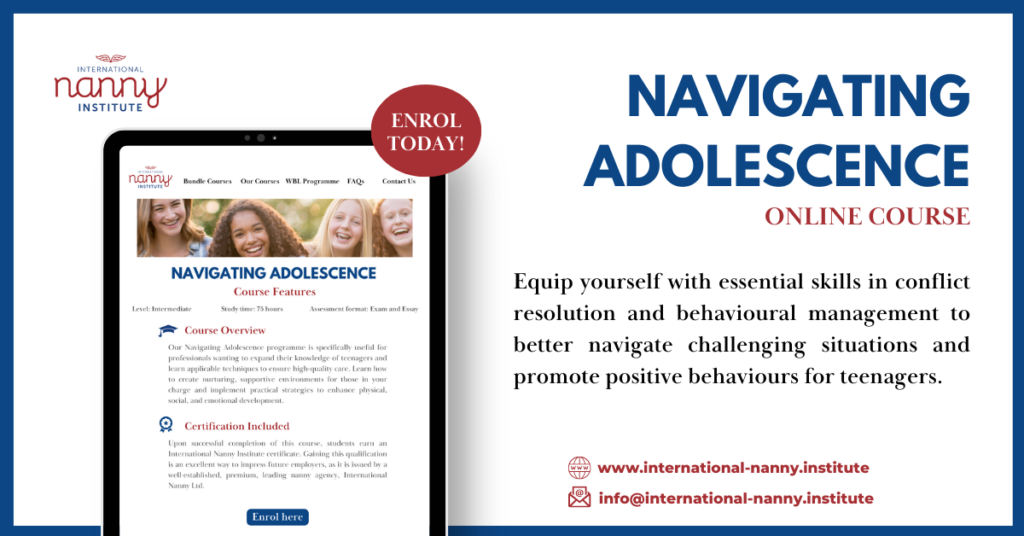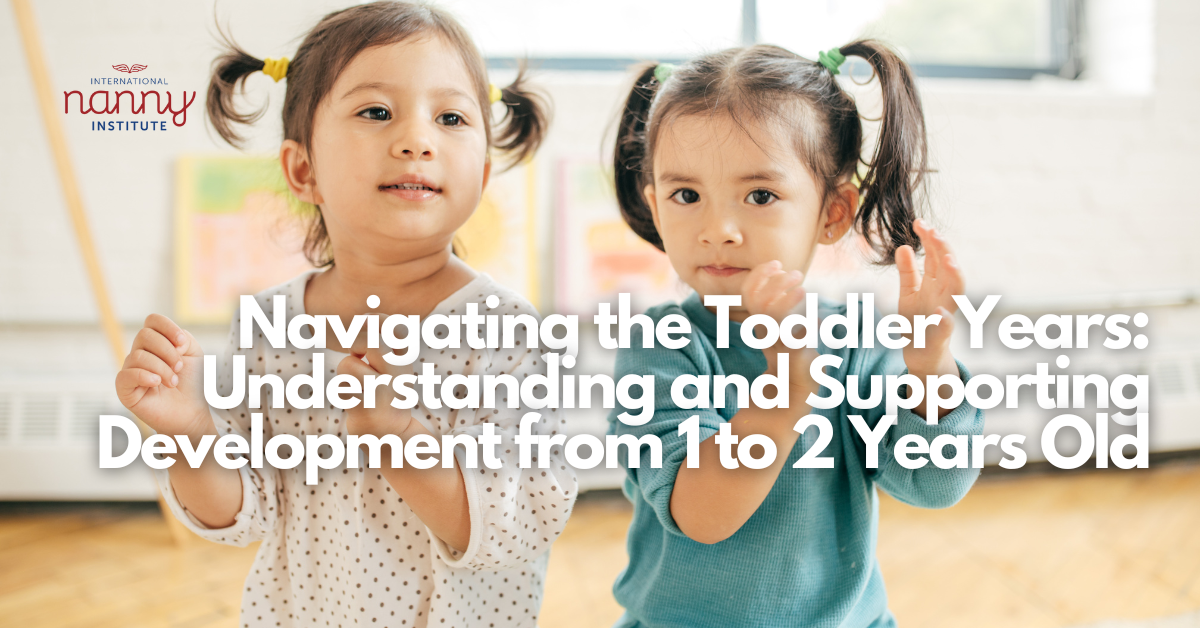Building Healthy Boundaries as a Nanny to Adolescents
As nannies, we play a vital role in the lives of the teenagers we care for. Our relationships with adolescent clients can feel like a delicate dance – we want to be a supportive, trusted figure in their lives, but we also need to maintain appropriate boundaries. Getting this balance right is key to providing the best possible care and establishing and upholding healthy boundaries as a nanny to adolescents is essential for a few key reasons:

Modelling Healthy Relationships
The way we interact with our adolescent charges serves as a model for the kinds of relationships they will have in the future. By demonstrating appropriate boundaries, we can help shape their understanding of what healthy connections look like. This is especially important during a time when teens are beginning to navigate more complex social and romantic dynamics.
Preserving Professionalism
Even as we develop close, caring relationships with the teens we work with, it’s important to remember that our role is fundamentally a professional one. Maintaining clear boundaries helps us avoid blurring the lines between “nanny” and “friend.” This preserves the structure and authority needed to effectively support adolescents, while also creating an environment of trust and respect.
Protecting Emotional Safety
Adolescence can be an intensely emotional time, with mood swings, drama, and heightened sensitivity. Without clear boundaries, nannies risk becoming entangled in teenagers’ personal dramas in ways that could be psychologically harmful for both parties. Maintaining appropriate distance helps preserve the emotional well-being of both the teen and the caregiver.

So how can nannies strike the right balance and build healthy boundaries with the adolescents in their care? Here are some key strategies:
Define Roles and Expectations
Have an open discussion with both the teen and their family about the scope of your responsibilities and the nature of your relationship. Get on the same page about what is and isn’t appropriate, and document these agreements in a formal contract or job description.
Maintain Appropriate Physical and Emotional Distance
Avoid initiating or engaging in overly intimate physical contact, such as hugging or cuddling, and be mindful of not becoming a teen’s sole emotional confidante by encouraging them to build a support network of peers, family, teachers, and counsellors as well.

Establish and Uphold Consistent Rules
Work with the family to set clear guidelines around things like curfews, cell phone usage, and acceptable behaviour. Resist the temptation to make exceptions or “be the cool nanny” – consistency is key.
Respect Privacy and Confidentiality
Honour the teen’s right to privacy, and avoid prying into their personal affairs or sharing sensitive information without permission. This helps maintain trust and preserves the teen’s autonomy.

Know Your Limits
If a situation arises that feels beyond your expertise or comfort level, don’t hesitate to seek support from the parents or other professionals. Acknowledge when you need additional guidance or resources.
Striking the right balance with young people takes care and consideration, but by building and maintaining healthy boundaries, we can create an environment of trust, respect, and safety – which is the foundation for truly impactful caregiving. As caregivers, we have the privilege of guiding young people through some of the most pivotal years of their lives. The “Navigating Adolescence“ course from the International Nanny Institute will empower you to fulfil this role with unparalleled expertise and confidence. Gain the specialised knowledge to better understand, support, and empower the teens in your care. From cultivating life skills to navigating social media, you’ll acquire the tools to help adolescents thrive. Elevate your nanny practice, boost your earning potential, and make a lasting impact on the lives of the families you serve.









